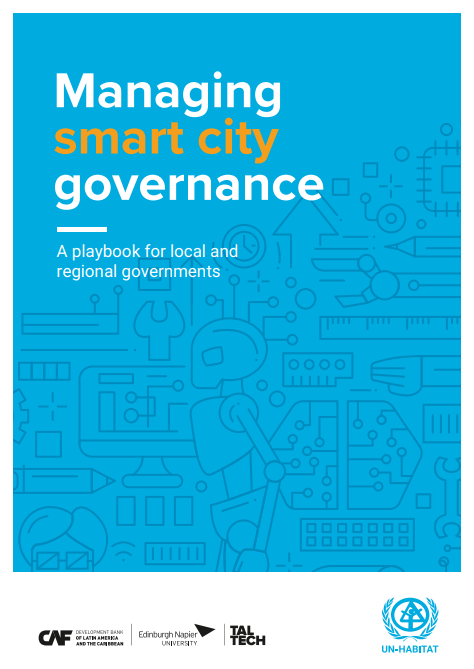Managing smart city governance
A playbook for local and regional governments

This playbook titled Managing Smart City Governance and its recommendations are primarily aimed at municipal governments and their political leaders, local administrators, and public officials who are involved in smart city initiatives. The recommendations, which are delineated in the subsequent sections of this playbook, are intended to help develop more effective, inclusive, and sustainable governance practices for urban digital transformations. The guidance offered on these pages could also be useful for national agencies, private companies, non-governmental organisations, and all stakeholders committed to promoting the sustainable development of urban communities through the implementation of smart city initiatives.
The study underscores the complexity of governance challenges faced by municipal administrators steering smart city initiatives. These issues arise from diverse factors, including regulatory ambiguities related to emerging technologies and structural constraints within the public sector. Notably, 84% of survey respondents acknowledged ongoing ethical concerns tied to digital technologies, attributed to the absence of robust regulatory frameworks and competency gaps in municipal governments. Additionally, governance hurdles include intricate dynamics between municipal governments and collaborators in smart city initiatives. A significant concern is the limited involvement of residents, with 78% of respondents lamenting this aspect, and only one-third reporting instances of data-sharing practises between municipal governments and private entities. Overall, the findings highlight the multifaceted nature of governance challenges in implementing smart city initiatives.
Abstract based on original source.


Comments